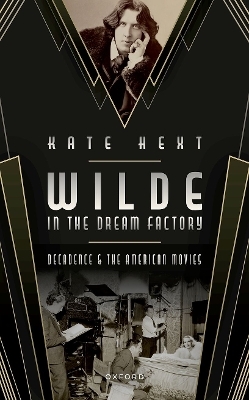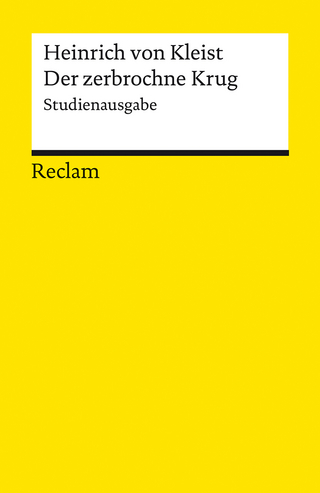
Wilde in the Dream Factory
Decadence and the American Movies
Seiten
2024
Oxford University Press (Verlag)
978-0-19-887537-6 (ISBN)
Oxford University Press (Verlag)
978-0-19-887537-6 (ISBN)
Wilde in the Dream Factory studies the influence of Oscar Wilde's work on American cinema and culture, with close readings of Wilde's works alongside screwball comedies and film noir of the 1930s and 40s.
Hollywood is haunted by the ghost of playwright and novelist Oscar Wilde. This is the story of his haunting, told for the first time. Set within the rich evolving context of how the American entertainment industry became cinema, and how cinema become the movies, it reveals how Wilde helped to shape Hollywood in the early twentieth century.
It begins with his 1882 American tour, and traces the ongoing popularity of his plays and novel in the early twentieth century, after his ignominious death. Following the early filmmakers, writers and actors as they headed West in the Hollywood boom, it uncovers how and why they took Wilde's spirit with them. There, in Hollywood, in the early days of silent cinema, Wilde's works were adapted. They were also beginning to define a new kind of style -- a 'Wilde-ish spirit', as Ernst Lubitsch called it -- filtering into the imaginations of Lubitsch himself, as well as Alla Nazimova, Ben Hecht, Samuel Hoffenstein and many others. These were the people who translated Wilde's queer playfulness into the creation of screwball comedies, gangster movies, B-movie horrors, and films noir. There, Wilde and his style embodied a spirit of rebellion and naughtiness, providing a blue-print for the charismatic cinematic criminal and screwball talk onscreen.
Discussing films including Bringing Up Baby, Underworld, and Laura, alongside definitive adaptations of Wilde's works, including, The Picture of Dorian Gray, Lady Windermere's Fan, and Salome, Wilde in the Dream Factory revises how we understand both Wilde's afterlife and cinema's beginnings.
Hollywood is haunted by the ghost of playwright and novelist Oscar Wilde. This is the story of his haunting, told for the first time. Set within the rich evolving context of how the American entertainment industry became cinema, and how cinema become the movies, it reveals how Wilde helped to shape Hollywood in the early twentieth century.
It begins with his 1882 American tour, and traces the ongoing popularity of his plays and novel in the early twentieth century, after his ignominious death. Following the early filmmakers, writers and actors as they headed West in the Hollywood boom, it uncovers how and why they took Wilde's spirit with them. There, in Hollywood, in the early days of silent cinema, Wilde's works were adapted. They were also beginning to define a new kind of style -- a 'Wilde-ish spirit', as Ernst Lubitsch called it -- filtering into the imaginations of Lubitsch himself, as well as Alla Nazimova, Ben Hecht, Samuel Hoffenstein and many others. These were the people who translated Wilde's queer playfulness into the creation of screwball comedies, gangster movies, B-movie horrors, and films noir. There, Wilde and his style embodied a spirit of rebellion and naughtiness, providing a blue-print for the charismatic cinematic criminal and screwball talk onscreen.
Discussing films including Bringing Up Baby, Underworld, and Laura, alongside definitive adaptations of Wilde's works, including, The Picture of Dorian Gray, Lady Windermere's Fan, and Salome, Wilde in the Dream Factory revises how we understand both Wilde's afterlife and cinema's beginnings.
She is author of Walter Pater: Individualism and Aesthetic Philosophy (2013), and co-editor of Decadence in the Age of Modernism (2019).
List of Figures
Preface: The Ghosts of Wildean Decadence
1: Wilde in the American Imagination
2: Naughty, Decadent, Silent Moving Pictures
3: Salome on Sunset Boulevard
4: Wilde-ish Spirit Goes West
5: The Gangster as Aesthete
6: A Wildean Universe: From Epigrams to Screwball Talk
7: The Aesthete as Monster
Oscar Wilde, Hollywood Rebel: Conclusion
Select Works Cited
Selected Filmography
Index
Acknowledgements
| Erscheinungsdatum | 03.04.2024 |
|---|---|
| Verlagsort | Oxford |
| Sprache | englisch |
| Maße | 140 x 224 mm |
| Gewicht | 462 g |
| Themenwelt | Literatur ► Lyrik / Dramatik ► Dramatik / Theater |
| Geisteswissenschaften ► Sprach- / Literaturwissenschaft ► Anglistik / Amerikanistik | |
| Geisteswissenschaften ► Sprach- / Literaturwissenschaft ► Literaturgeschichte | |
| Geisteswissenschaften ► Sprach- / Literaturwissenschaft ► Literaturwissenschaft | |
| ISBN-10 | 0-19-887537-1 / 0198875371 |
| ISBN-13 | 978-0-19-887537-6 / 9780198875376 |
| Zustand | Neuware |
| Haben Sie eine Frage zum Produkt? |
Mehr entdecken
aus dem Bereich
aus dem Bereich
Der Tragödie erster und zweiter Teil. Urfaust
Buch | Hardcover (2021)
C.H.Beck (Verlag)
CHF 15,90
Kleist, Heinrich von – Deutsch-Lektüre, Deutsche Klassiker der …
Buch | Softcover (2024)
Reclam, Philipp (Verlag)
CHF 11,90


